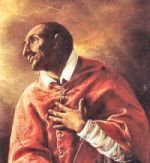Make your gift today!
Help keep Catholics around the world educated and informed.
Already donated? Log in to stop seeing these donation pop-ups.
Catholic Dictionary
Find accurate definitions of over 5,000 Catholic terms and phrases (including abbreviations). Based on Fr. John Hardon's Modern Catholic Dictionary, © Eternal Life. Used with permission.
Random Term from the Dictionary:
DIVINE LAW
The eternal law of God, or the divine reason as governing the whole universe. God conceived as the Ruler of the Universe. The plan of government that he has in his mind bears the character of law, and because it is conceived in eternity and not in time, it is said to be the eternal law. This eternal law embraces both the physical and moral laws. both have in common the idea of some norm to be fulfilled. In physical laws, this norm is fulfilled necessarily, as happens with gravity or the expansion of matter by heat. In moral laws, the norm may or may not be fulfilled depending on the free decision of human beings.
The eternal moral law has been manifested to the human race in two ways, naturally and supernaturally. In the first case, human beings come to know the eternal law from created nature through the light of native reason; this is natural law in the full scope of its meaning. In the second case, human beings come to know the eternal law from divine revelation to which they can respond with the help of God's grace. This is the revealed law that spans the whole ambit of God's special communication of his will "through the prophets" in times past and in our own time "through His Son" (Hebrews 1:1).
Since human beings are both individual and social beings, they are obliged by the eternal law on both levels of their existence. The duties that they have as individuals are of course never totally separable from their responsibilities as members of the human family. They are consequently always social by implication. But within the larger community of the human race are two societies that Catholicism has designated as "perfect" or "complete," in the sense that they are divinely provided with the necessary means to fulfill their respective reasons for existence. They are the civil society of the State and the ecclesiastical society of the Church.
Accordingly, each of these societies has the right to make its own laws and bind its members in conscience to obedience. Civil laws oblige all baptized persons who have reached the age of discretion and are therefore able to make rational decisions; yet the Church may also obligate children below that age in matters that pertain to the common good of the faithful.






